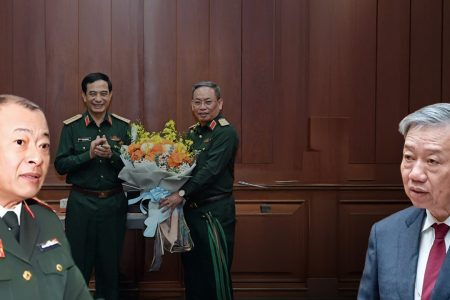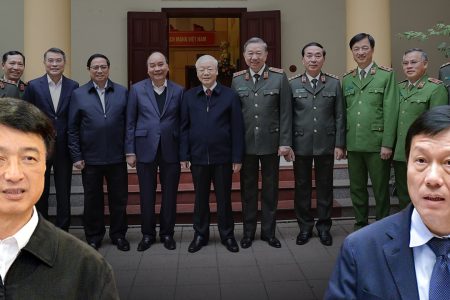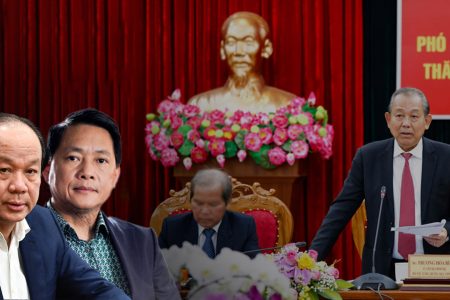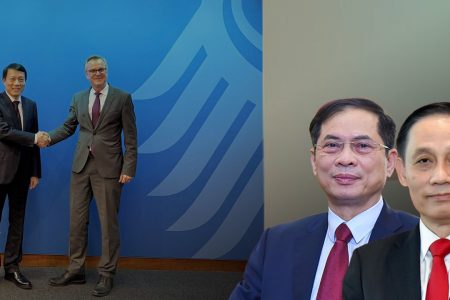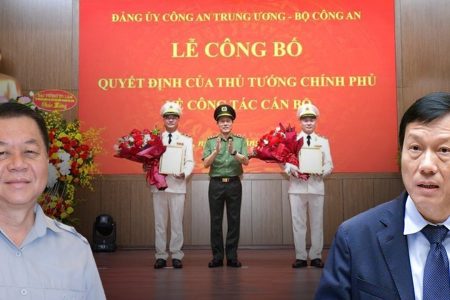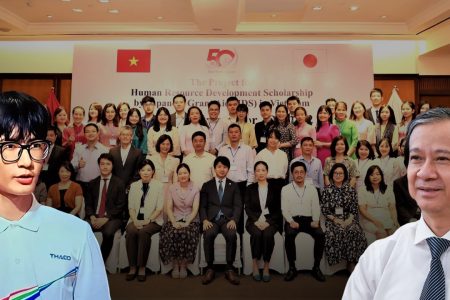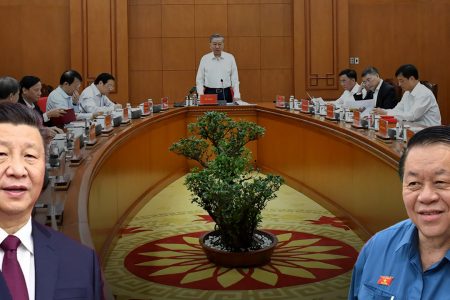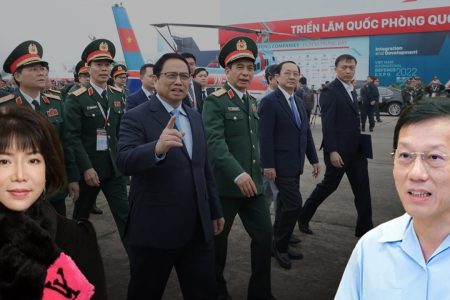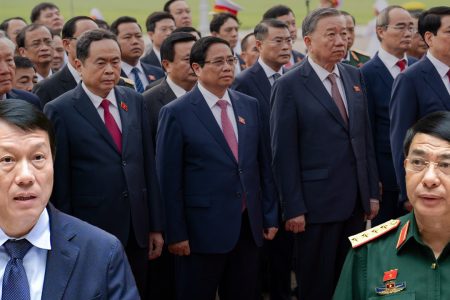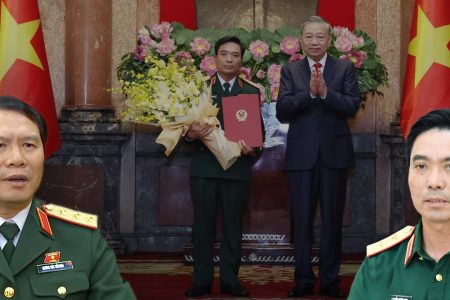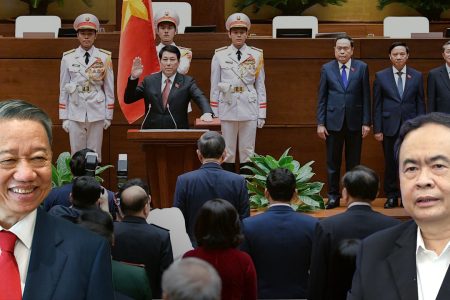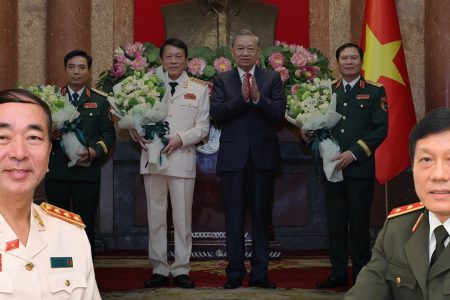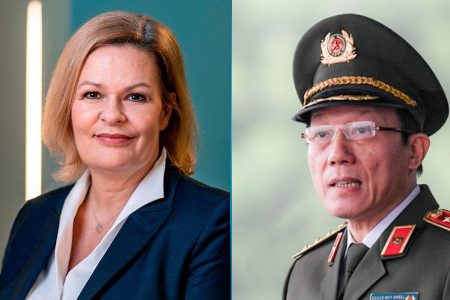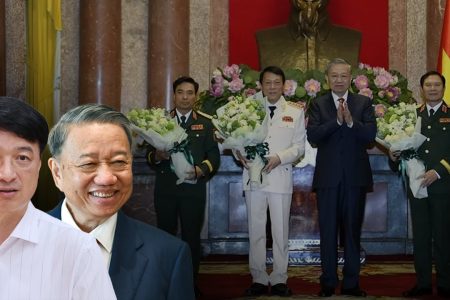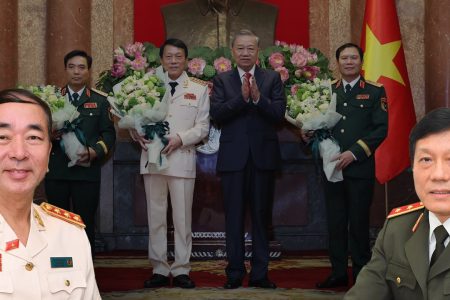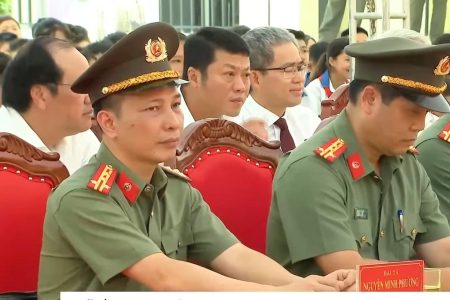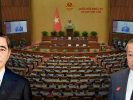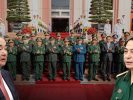
Investigation conclusion of of C03 Ministry of Public Security said that former Director of Bank Inspection and Supervision Department II of the State Bank of Vietnam Do Thi Nhan received a particularly large amount of bribe, up to $5.2 million (equivalent to more than VND118 billion). In return, she covered up the violations of Truong My Lan and Saigon Commercial Joint Stock Bank (SCB), in fraudulently appropriating assets.
The cash amount of $5.2 million USD, after receiving bribes from SCB Bank, Do Thi Nhan sent it to her relatives to keep, and bought land and real estate in someone else’s name…
Public opinion believes that this shows that the supervision mechanism of the state management system on banking activities is extremely weak and has many serious loopholes.
South China Morning Post on December 3 said it was surprised that SCB Bank employees, following Truong My Lan’s orders, transported $5.2 million in cash to Do Thi Nhan’s house by storing in foam containers used to preserve fresh food. Meanwhile, in any country in the world, specialized vehicles must be used when needing to transfer large amounts of cash.
This is also one of the reasons why the movement of large cash flows in the Van Thinh Phat case was not monitored. This also helps bribe takers easily erase traces of corrupt assets and remain undetected for a long time.
VnExpress news on December 8 with the title “Van Thinh Phat trial “exposes weakness in controlling officials’ assets” said at the Workshop to evaluate Vietnam’s anti-corruption work on the morning of December 8, Dr. Nguyen Van Thanh, former Deputy Inspector General of the Government, stated that the control of assets and income of officials and civil servants “has not achieved significant progress.”
According to Nguyen Van Thanh, the Van Thinh Phat case has exposed weaknesses in declaring and verifying assets and income of officials, including in important areas.
VnExpress also said “from October 2022 to September 2023, authorities verified 13,000 people, and detected 2,600 cases of violation. The main errors include declaring on the wrong form, not following instructions, not having enough information, and being late compared to regulations. Only 54 people who made dishonest declarations were disciplined.”
With the above information from VnExpress, public opinion evaluates and affirms that the number of 54/13,000 cases of dishonest declaration of assets and income by the Government is an unreliable number.
That is completely consistent with the opinion of Chairwoman of the National Assembly Judiciary Committee Le Thi Nga who reported to the National Assembly: “Through monitoring of public opinion and voters, it shows that there are still many violations of asset and income declaration. The Judicial Committee believes that this number is not commensurate with reality. Control over assets and income is still limited.”
Vietnam’s 2018 Anti-Corruption Law clearly stipulates that all officials and civil servants are obliged to declare assets and income. If someones are found to be dishonest, they may be warned, dismissed, or forced to quit their job.
In fact, according to observers, the ongoing verification of declared assets according to regulations is only formal and reactive. There are many localities and departments that even draw lots to choose officials to verify asset declarations, which public opinion criticizes as a formality.
The measure of declaring assets of leaders and civil servants is a necessary measure in the fight against corruption in almost every country in the world.
However, in Vietnam, most senior leaders, including the head of the Anti-Corruption Agency, are not exemplary in declaring assets according to regulations.
General Secretary Nguyen Phu Trong, on June 17, 2018, during a meeting with voters in Cau Giay district, Hanoi, talking about the declaration of assets of officials and civil servants, said that “Declaring assets of officials is very difficult and sensitive, because it involves private life and personal secrets.”
According to public opinion, this statement by General Secretary Trong – head of the Communist Party of Vietnam – is extremely contradictory. Because in this way, there will be a situation where “the top is unjust, the bottom is chaotic” and the policy of requiring asset declaration by the Party and the Vietnamese government will not achieve thorough results.
In fact, in Vietnam, there have been many leaders holding high positions in the Party and state apparatus, and asset declarations have always been considered truthful for a long time. However, later, when involved in corruption cases and investigated, at that time, the declaration of assets was all false.
Thoibao.de (Translated)



